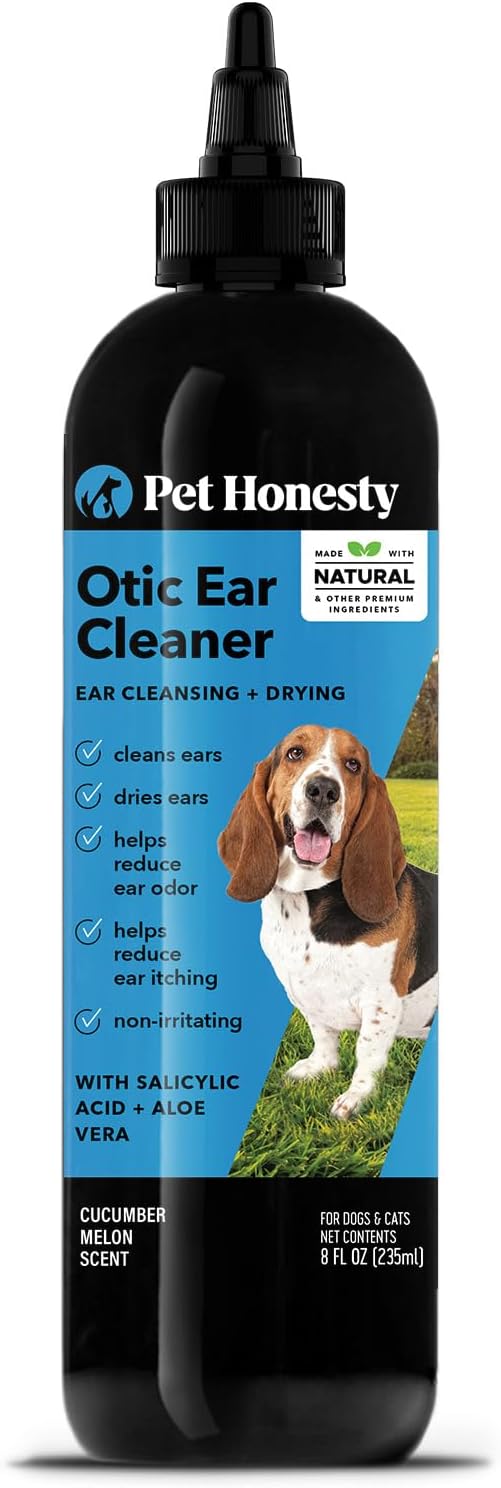 |
Key Health Risks and Care Tips for Jack Russell Terriers:
|
| Jack Russell Terriers are energetic and intelligent but prone to certain health conditions. Common issues include joint problems like patellar luxation, eye disorders such as primary lens luxation (PLL), and skin allergies that cause itching and irritation. They may also develop neurological conditions like cerebellar ataxia, affecting coordination. Their small jaws make them susceptible to dental disease, requiring regular oral care.
Due to their high energy levels, Jack Russells may not show symptoms of underlying health problems until they worsen. Regular vet checkups, a nutrient-rich diet, joint supplements, and weight management are essential for their well-being. Proper grooming and preventive care help maintain a healthy coat and skin, while structured exercise routines reduce the risk of obesity and mobility issues. By staying proactive, providing consistent care, and recognizing early warning signs, Jack Russell owners can help their dogs live long, active, and pain-free lives. |
|
Why Understanding Jack Russell Health Issues Matters
Jack Russell Terriers are a powerhouse of enthusiasm, agility, and intelligence, but beneath their spirited nature lies a genetic blueprint that predisposes them to certain health complications. While these pint-sized dynamos may seem invincible as they tear across yards and leap over obstacles, their long-term well-being depends on proactive care and an awareness of potential medical hiccups.
The Hidden Vulnerabilities of an Energetic Breed
Jack Russells are notorious for their high-octane lifestyles, but that same vigor can sometimes mask underlying issues. Many conditions creep in subtly, showing only minor signs until they become more serious. A dog that suddenly hesitates before jumping or starts scratching excessively might be dealing with something more than just a bad day.
Here’s why being well-versed in their health landscape is crucial:
- Joint and Bone Concerns – Their relentless activity makes them prone to patellar luxation (slipping kneecaps) and Legg-Calvé-Perthes disease, a degenerative hip issue. Early intervention can prevent mobility struggles.
- Ocular Predispositions – Jack Russells are genetically inclined to develop primary lens luxation (PLL), a condition where the lens dislocates, leading to vision impairment or blindness if untreated.
- Dermatological Sensitivities – With their short coats and high exposure to outdoor elements, these terriers often experience atopic dermatitis triggered by environmental allergens like pollen and dust mites.
- Neurological Complexities – Some Jack Russells suffer from late-onset cerebellar ataxia, which affects coordination and balance. While rare, this condition is progressive and has no cure.
- Dental Decline – Their small jaws can lead to crowded teeth, increasing the risk of periodontal disease if oral hygiene isn’t maintained.
Why This Knowledge Is a Game-Changer
Many dog lovers assume their Jack Russell’s feisty attitude is a sign of perfect health, but that’s not always the case. Knowing the breed’s predispositions allows pet owners to detect red flags early, invest in preventive care, and extend their dog’s lifespan.
Preventive strategies, such as joint-supportive diets, regular eye checkups, and allergy management plans, can significantly reduce the risk of severe conditions. Additionally, genetic screening is now an option for many hereditary issues, helping breeders and owners make informed decisions.
The Key to a Thriving Jack Russell
Being an owner means more than just providing food and exercise. It requires a keen eye for subtle changes that may indicate an emerging health issue. By staying informed and proactive, you can ensure your Jack Russell enjoys an adventurous, pain-free life.
Common Health Issues in Jack Russell Terriers
Jack Russell Terriers may be small, but they are genetically predisposed to several medical concerns. While their zest for life often overshadows minor ailments, underlying health problems can escalate if left unaddressed. Below is a breakdown of the most common health conditions that Jack Russells face, their symptoms, and possible treatments.
Health Conditions in Jack Russell Terriers
| Health Issue | Symptoms | Causes | Treatment/Prevention |
| Patellar Luxation | Limping, skipping steps, reluctance to jump | Genetic predisposition, excessive activity | Weight management, surgery in severe cases |
| Primary Lens Luxation (PLL) | Squinting, watery eyes, vision loss | Inherited disorder, aging | Early detection, surgery, eye drops |
| Legg-Calvé-Perthes Disease | Lameness, muscle wasting, pain | Blood supply issues in hip joint | Physical therapy, surgery if advanced |
| Atopic Dermatitis | Itchy skin, redness, hair loss | Allergens like pollen, dust | Medicated shampoos, antihistamines, hypoallergenic diet |
| Cerebellar Ataxia | Unsteady gait, loss of coordination | Neurological disorder, hereditary | Supportive care, physical therapy |
| Periodontal Disease | Bad breath, swollen gums, tooth loss | Poor dental hygiene, plaque buildup | Regular brushing, professional cleanings |
Jack Russells are resilient, but they rely on their owners to spot these warning signs early. The best way to manage these issues is prevention, early intervention, and routine vet checkups.
How to Keep Your Jack Russell Healthy and Active
Caring for a Jack Russell requires more than just regular walks and a good diet. Given their predisposition to certain health concerns, a proactive approach can make all the difference. Here’s a roadmap to ensure your Jack Russell thrives.
Prioritize a Nutrient-Dense Diet
- Feed high-quality, protein-rich kibble to support muscle strength and overall vitality.
- Include omega-3 fatty acids to support joint and skin health.
- Avoid grain-heavy fillers that may trigger allergies.
Keep Those Joints Moving
- Engage in low-impact exercises like controlled walks and swimming to prevent joint strain.
- Consider glucosamine supplements to strengthen cartilage.
Protect Their Eyesight
- Schedule annual eye checkups to catch early signs of primary lens luxation.
- Minimize exposure to dust, pollen, and strong winds that could irritate their eyes.
Combat Skin Sensitivities
- Use hypoallergenic shampoos to reduce irritation.
- Watch for excessive scratching, which may indicate an allergy or infection.
Maintain Dental Hygiene
- Brush their teeth at least three times a week to prevent gum disease.
- Provide dental chews to help remove plaque buildup.
By sticking to these fundamental health practices, you can help your Jack Russell avoid unnecessary pain and discomfort while maximizing their lifespan.
Step-by-Step Guide to a Healthier Jack Russell
Ensuring your Jack Russell remains in peak condition requires a structured approach to their care. Follow these essential steps:
Step 1: Routine Veterinary Visits
Annual checkups allow early detection of common health problems such as joint disorders, eye conditions, and allergies. Even if your Jack Russell appears healthy, regular vet visits can catch issues before they escalate.
Step 2: Monitor Their Weight
Jack Russells are prone to obesity, which can put extra strain on their joints. Therefore, they should maintain a balanced feeding schedule and avoid excessive treats.
Step 3: Check Their Eyes and Ears Weekly
Look for signs of redness, cloudiness, or discharge in their eyes, and check their ears for wax buildup or unusual odors. Early detection is key to preventing serious infections.
Step 4: Keep Their Coat and Skin Healthy
Regular brushing helps distribute natural oils, keeping their skin moisturized and less prone to irritation. For allergy-prone Jack Russells, use mild, vet-approved shampoos.
Step 5: Strengthen Their Joints Through Smart Exercise
While Jack Russells love to sprint and jump, too much high-impact activity can lead to joint wear and tear. Incorporate a mix of short bursts of play and controlled movement exercises.
Step 6: Stay On Top of Preventive Care
Use flea and tick preventatives, schedule vaccinations, and deworm them regularly to keep parasites and infections at bay.
Frequently Asked Questions About Jack Russell Health
What are the most common health problems in Jack Russell Terriers?
Jack Russells are prone to patellar luxation, primary lens luxation (PLL), skin allergies, and periodontal disease. Regular vet visits and preventive care can help manage these risks.
How can I prevent joint problems in my Jack Russell?
Maintaining a healthy weight, providing glucosamine supplements, and avoiding excessive jumping on hard surfaces can reduce the risk of joint issues.
Are Jack Russells prone to vision problems?
Yes, primary lens luxation (PLL) is a genetic eye disorder in Jack Russells that can lead to blindness. Annual eye checkups and early intervention are crucial.
What should I feed my Jack Russell for optimal health?
A diet rich in lean protein, omega-3 fatty acids, and low-grain fillers supports their muscle tone, skin health, and joint function.
How often should I brush my Jack Russell’s teeth?
Brushing at least three times a week is recommended to prevent gum disease and bad breath.
Do Jack Russells need special skincare?
Yes, they are prone to atopic dermatitis, so using hypoallergenic shampoos and monitoring skin irritations is essential.
Essential Health & Wellness Products for Your Jack Russell Terrier
|
|
||
|
 |
||
|
 |
||
|
 |
||
|
 |
||
|
 |
||
|
 |
||
|
 |
||
|
 |
||
|
 |
Ensuring a Long and Healthy Life for Your Jack Russell
Jack Russell Terriers are bundles of energy and affection, but their high-energy lifestyle can sometimes mask underlying health concerns. Being informed about their common medical conditions allows owners to take early action, implement preventive care, and provide tailored attention to their needs.
Routine vet visits, a balanced diet, joint support, proper dental care, and skin maintenance all contribute to a healthier, happier Jack Russell. While genetic conditions may not always be avoidable, staying one step ahead with regular health checkups ensures your Jack Russell enjoys a long, pain-free, and adventurous life.
By integrating these best practices into your routine, you can help your Jack Russell reach their full potential—full of energy, vitality, and a wagging tail for years to come.


